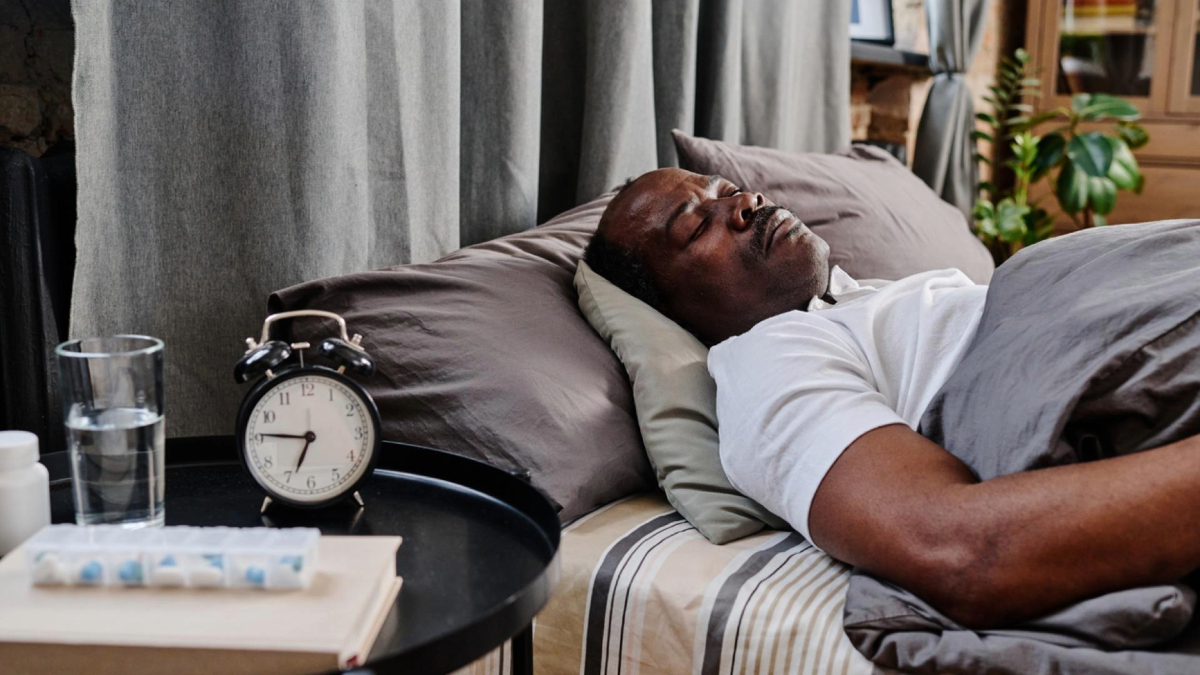
Sleep is critical to the quality of life. Our latest expert article provides helpful tips for improving the quality of sleep for caregivers and persons with Alzheimer’s.
An exasperated caregiver called to report that his care recipient, an 80-year-old woman with Alzheimer’s, had not slept for 48 hours. The woman was recently discharged from the hospital, and her sleep cycle had been turned upside down. Because she was not able to sleep, neither was he. He was exhausted. Despite all his abilities, lack of sleep rendered him unable to think through the problem and determine a course of action.
Quality sleep is critical to the quality of life. The process of sleep, as reported in Science in 2013, acts like a washer to the brain, clearing out neurotoxins collected during the waking hours. Without quality sleep, such as those who have sleep apnea, this process does not take place, and the restorative function of sleep fails. This explains why a good night’s sleep leaves us feeling so refreshed, and better able to think through problems.
Improving Sleep – For Everyone
Whether it is sleeping problems for the one with Alzheimer’s, or a caregiver’s inability to sleep, quality sleep must be a goal of the care recipient’s plan of care. It is critical to the quality of life and safety, for both of you. Below are steps and options caregivers can take to address sleep problems for both the person with Alzheimer’s or dementia, and for themselves.
Sleep Disturbances
Because Alzheimer’s is characterized by sleep disturbances, the night can turn into day, and vice versa. A tendency to sleep during the day can create difficulty sleeping during the night. Alzheimer’s can also cause one to wake up frequently during the night. There are steps, though, that a caregiver can take to improve their care recipient’s sleep pattern.
For Care Recipients
Follow Daily Routines and Create Optimal Environments
During the Day:
- Daily exercise is a must. Make it active, make it safe and make it fun. Walking and gardening are just two of many possibilities. Again, make it a part of the daily routine.
- Get outside for fresh air and plenty of daylight.
- When indoors, stay active and engaged. Puzzles, art projects, simple housework, music with dancing around the house, etc. Keep TV time to a minimum. The point is to keep your care recipient as engaged as possible. Doing so will lessen the tendency to fall asleep during the day.
- Keep window coverings open during the day to let in the daylight.
- Diet affects sleep quality. Avoid caffeine and sugar. Reduce salt intake.
- When you have incorporated all of the above steps, and your care recipient is still struggling with sleep, work with his or her physician for a medical solution. In the above example, a geriatrician was consulted, resulting in a prescription that resolved her sleep problems over a period of several weeks.
At Night:
- Create a calm, restful environment. Close window coverings and lower the lighting for a soothing evening atmosphere. Engage in quiet and calming activities, refraining from any over-stimulating evening activities.
- Remain mindful of safety in the home – especially if your loved one gets up during the night. Keep medications, and anything else that is dangerous – kitchen items, knives, guns, for example, locked up and out of reach.
- Keep nightlights on to create a path from the bedroom to the bathroom.
For Caregivers
If the person you care for can get restful sleep, chances are you will too. But if you are a caregiver who is on duty for 24 hours, seven days a week, you know sleep can be interrupted and will not be enough to sustain your energy throughout the day. Some of the following options can help:
- Caregiving is best done with the help of others. Create a partnership or team. Buddy up with another caregiver, family member or with someone who can give you some respite throughout the week. With another caregiver, you can trade some time off. Use the time off for quality down time, for whatever refreshes you.
- Adult day centers can be care options during the weekdays and would provide respite for a caregiver. Many do not require a five-day a week commitment but will accept someone 2-3 days per week.
Sleep is So Important
When Alzheimer’s affects sleep, we should always urgently move toward problem solving to bring back a good night’s sleep, for both the care recipient and for the caregiver. As addressed above, there are many options for resolving this problem.
About BrightFocus Foundation
BrightFocus Foundation is a premier global nonprofit funder of research to defeat Alzheimer’s, macular degeneration, and glaucoma. Since its inception more than 50 years ago, BrightFocus and its flagship research programs—Alzheimer’s Disease Research, Macular Degeneration Research, and National Glaucoma Research—has awarded more than $300 million in research grants to scientists around the world, catalyzing thousands of scientific breakthroughs, life-enhancing treatments, and diagnostic tools. We also share the latest research findings, expert information, and resources to empower the millions impacted by these devastating diseases. Learn more at brightfocus.org.
Disclaimer: The information provided here is a public service of BrightFocus Foundation and is not intended to constitute medical advice. Please consult your physician for personalized medical, dietary, and/or exercise advice. Any medications or supplements should only be taken under medical supervision. BrightFocus Foundation does not endorse any medical products or therapies.
- Lifestyle








